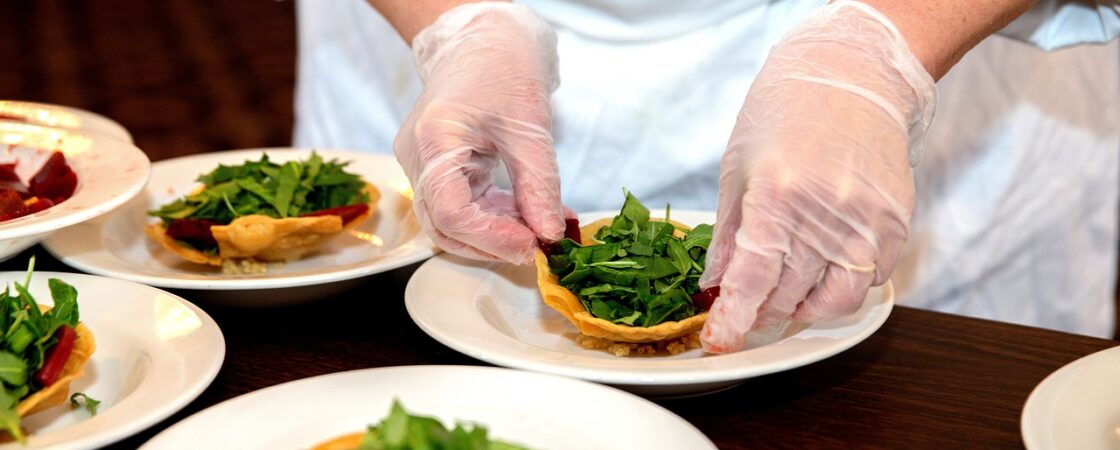The culinary industry in Canada offers a wealth of opportunities for professionals at every stage of their career. From bustling cities like Toronto and Vancouver to tourist hotspots like Banff and Quebec City, Canada’s diverse dining scene requires skilled chefs, sous-chefs, pastry chefs, line cooks, and many other culinary roles to cater to a growing demand.
Whether you’re a trained chef looking to expand your experience or an aspiring cook hoping to learn the ropes, this article will provide insights into the types of cooking jobs available, industry requirements, and tips for building a successful culinary career in Canada.
The Canadian Culinary Scene: A Diverse Landscape
The culinary scene in Canada is vast and diverse, influenced by global cuisines and local specialties alike. With a population that embraces multiculturalism, Canadian cities are home to restaurants serving everything from Asian fusion and Italian fine dining to indigenous-inspired dishes. This diversity fuels a strong demand for culinary professionals who can bring creativity, skill, and dedication to the kitchen.
Some of the most common types of cooking jobs in Canada include:
- Executive Chef: Oversees the entire kitchen, including menu creation, cost management, and kitchen operations.
- Sous Chef: Works directly under the executive chef, often managing the kitchen in their absence and supervising other cooks.
- Pastry Chef: Specializes in baked goods and desserts, creating pastries, cakes, and bread for restaurants, bakeries, and patisseries.
- Line Cook: Works in specific sections of the kitchen, preparing dishes as assigned by the sous chef or executive chef.
- Prep Cook: Assists in preparing ingredients, chopping vegetables, measuring portions, and other preparatory work.
- Catering Chef: Prepares meals for events and special functions, often requiring flexibility and versatility in cooking styles.
Types of Cooking Jobs Available Across Canada
Restaurants and Fine Dining Establishments
Roles: Chefs, sous chefs, line cooks, and pastry chefs.
Overview: The restaurant industry is one of the largest employers for culinary professionals in Canada, offering positions in high-end restaurants, casual dining spots, and fine dining establishments. These environments are often fast-paced, with high standards for quality and presentation.
Popular Locations: Toronto, Montreal, Vancouver, Calgary, and Ottawa.
Hotels and Resorts
Roles: Executive chefs, sous chefs, line cooks, and pastry chefs.
Overview: Hotels and resorts often have multiple dining facilities, offering diverse dining options that require a skilled culinary team. These roles may be more seasonal, particularly in tourist destinations like Banff, Whistler, and Niagara Falls.
Key Locations: Banff, Whistler, and Prince Edward Island.
Catering Services
Roles: Catering chefs, prep cooks, and line cooks.
Overview: Catering chefs provide services for events, including weddings, corporate gatherings, and social functions. This field requires versatility in cuisine and adaptability to different cooking environments.
Key Locations: Primarily available in urban centers where corporate events and weddings are frequent.
Institutional and Corporate Kitchens
Roles: Chefs and line cooks.
Overview: Cooking jobs in corporate or institutional settings include hospitals, schools, and government facilities. These kitchens typically follow standardized menus, with a strong emphasis on nutritional guidelines.
Key Locations: Major cities like Toronto, Vancouver, and Montreal.
Private Chef Roles
Roles: Personal chefs, in-home chefs, and private event caterers.
Overview: Private chefs may work for families, celebrities, or high-net-worth individuals, providing personalized meal services. This role often requires extensive experience and flexibility.
Key Locations: Urban centers and affluent areas.
Qualifications and Skills for Culinary Jobs in Canada
While specific qualifications may vary depending on the role, there are general skills and credentials that can boost your employability in Canada’s culinary industry:
1. Formal Education: While not always required, a culinary diploma or degree from a recognized institution can be advantageous, especially for high-level positions like sous chef or executive chef. Many culinary schools across Canada, including George Brown College in Toronto and the Pacific Institute of Culinary Arts in Vancouver, offer specialized programs.
2. Apprenticeship: Completing an apprenticeship allows aspiring chefs to gain practical experience and mentorship under experienced professionals. Some roles, particularly in fine dining, look favorably on candidates who have apprenticed in well-respected kitchens.
3. Food Safety Certification: Most provinces in Canada require food handlers and chefs to obtain food safety certification. This ensures safe food practices, which is critical in professional kitchens.
4. Multitasking and Time Management: Cooking in a high-pressure environment requires efficiency and the ability to multitask. Chefs and cooks are often juggling multiple orders at once, so time management skills are essential.
5. Creativity and Innovation: For roles like executive chef or sous chef, creativity in menu development is highly valued. In a competitive industry, offering unique and innovative dishes can set a restaurant or culinary professional apart.
Average Salaries for Culinary Jobs in Canada
Salaries in the culinary field vary based on experience, job title, location, and the type of establishment. Here’s an overview of average earnings in some common culinary roles:
Executive Chef: $50,000 to $85,000 per year
Sous Chef: $40,000 to $60,000 per year
Pastry Chef: $35,000 to $55,000 per year
Line Cook: $30,000 to $40,000 per year
Prep Cook: $25,000 to $35,000 per year
Salaries are generally higher in major cities, although the cost of living is also higher in those areas. Seasonal roles, particularly in resorts and tourist destinations, may offer competitive wages but might only be available during peak tourism seasons.
How to Find Cooking Jobs in Canada
Finding a cooking job in Canada can be made easier with these practical steps:
1. Utilize Job Portals
Job search engines like Indeed, Glassdoor, and LinkedIn frequently post culinary positions.
Specialized sites, such as GoodFoodJobs and CulinaryAgents, focus on the hospitality and culinary industry, offering targeted listings for chefs and kitchen staff.
2. Network within the Industry
Networking can open doors in the culinary industry. Attend culinary events, join professional organizations like the Canadian Culinary Federation, and connect with industry professionals.
3. Work with Recruitment Agencies
Some recruitment agencies specialize in the hospitality industry and can connect you with reputable employers. Companies like Hcareers and TalentSphere work with restaurants, hotels, and resorts across Canada.
4. Apply Directly to Restaurants and Hotels
If there are specific restaurants or hotels you are interested in, consider reaching out directly. Many establishments welcome walk-in applications or online applications via their websites.
Tips for Success in Canadian Cooking Jobs
1. Continuously Hone Your Skills: The culinary field is ever-evolving, with new cooking techniques, ingredients, and dietary trends emerging regularly. Continuous learning through courses, workshops, and online resources can help keep you relevant.
2. Gain Diverse Experience: Working in various types of establishments—whether fine dining, catering, or corporate kitchens—provides a well-rounded skill set that increases employability.
3. Stay Physically Fit: The physical demands of a culinary job, including long hours on your feet, heavy lifting, and working in high temperatures, require good physical stamina. Prioritizing your physical well-being can enhance performance in the kitchen.
4. Work on Soft Skills: Soft skills like communication, teamwork, and stress management are critical in a kitchen environment. Being able to collaborate effectively with your team and stay calm under pressure is essential for success.
Conclusion
Cooking jobs in Canada offer exciting opportunities for culinary professionals of all levels. With its dynamic food scene and growing demand for skilled chefs, Canada provides a platform where talent and passion for food can translate into rewarding careers. Whether you aspire to work in a high-end restaurant, a bustling hotel kitchen, or as a personal chef, the Canadian culinary industry welcomes a diverse array of skills and specialties.
Building a successful career in Canada’s culinary landscape requires a combination of experience, formal training, and a commitment to honing your craft. With opportunities across various sectors and locations, now is a great time to explore cooking jobs in Canada and start making your mark on this thriving industry.
Originally posted 2024-10-28 10:45:06.



